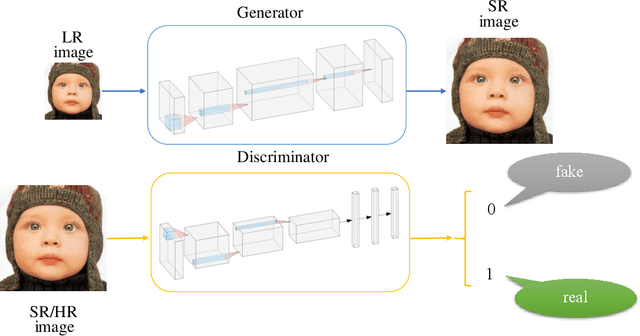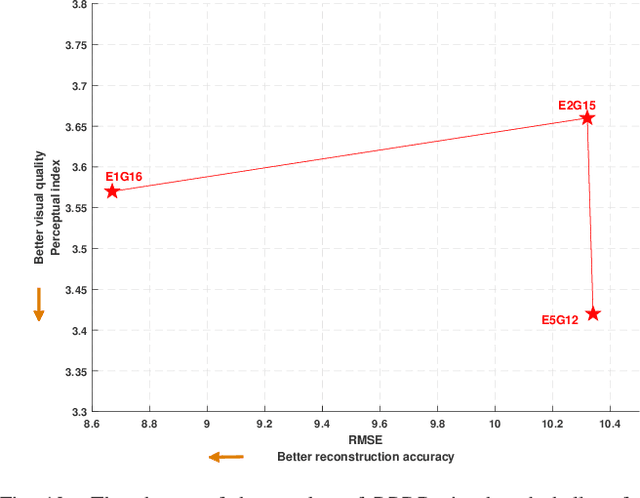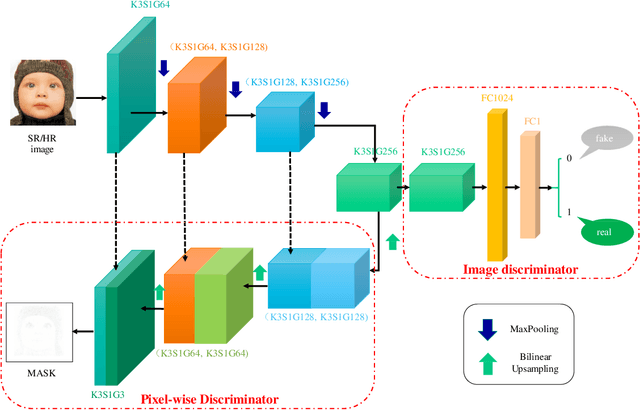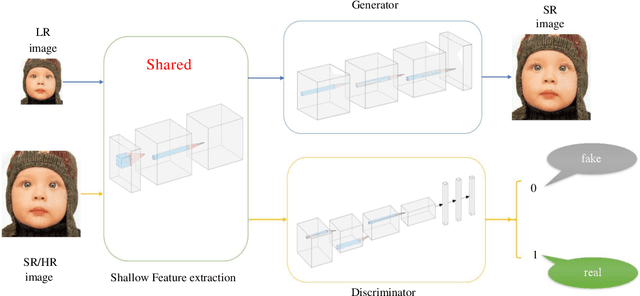Yitong Yan
Fine-grained Attention and Feature-sharing Generative Adversarial Networks for Single Image Super-Resolution
Nov 25, 2019



Abstract:The traditional super-resolution methods that aim to minimize the mean square error usually produce the images with over-smoothed and blurry edges, due to the lose of high-frequency details. In this paper, we propose two novel techniques in the generative adversarial networks to produce photo-realistic images for image super-resolution. Firstly, instead of producing a single score to discriminate images between real and fake, we propose a variant, called Fine-grained Attention Generative Adversarial Network for image super-resolution (FASRGAN), to discriminate each pixel between real and fake. FASRGAN adopts a Unet-like network as the discriminator with two outputs: an image score and an image score map. The score map has the same spatial size as the HR/SR images, serving as the fine-grained attention to represent the degree of reconstruction difficulty for each pixel. Secondly, instead of using different networks for the generator and the discriminator in the SR problem, we use a feature-sharing network (Fs-SRGAN) for both the generator and the discriminator. By network sharing, certain information is shared between the generator and the discriminator, which in turn can improve the ability of producing high-quality images. Quantitative and visual comparisons with the state-of-the-art methods on the benchmark datasets demonstrate the superiority of our methods. The application of super-resolution images to object recognition further proves that the proposed methods endow the power to reconstruction capabilities and the excellent super-resolution effects.
 Add to Chrome
Add to Chrome Add to Firefox
Add to Firefox Add to Edge
Add to Edge